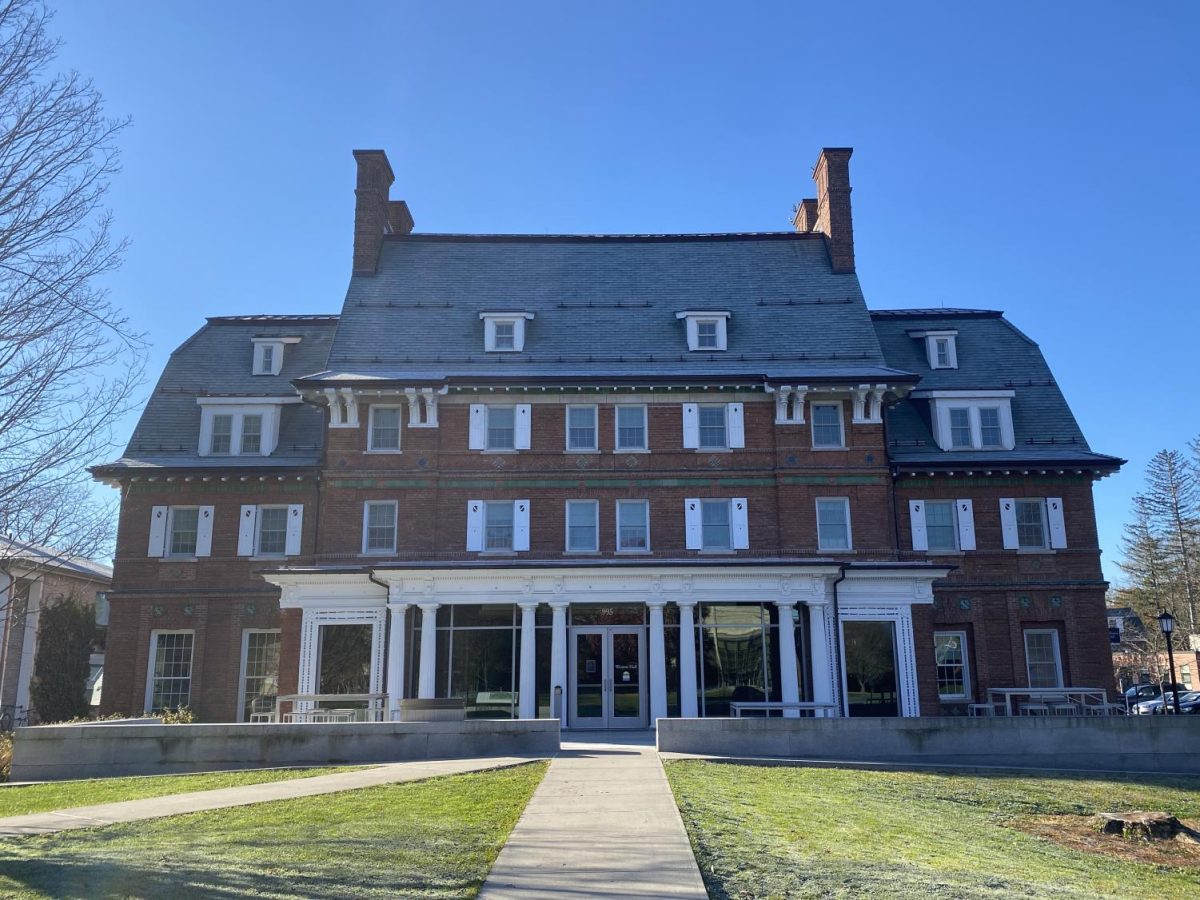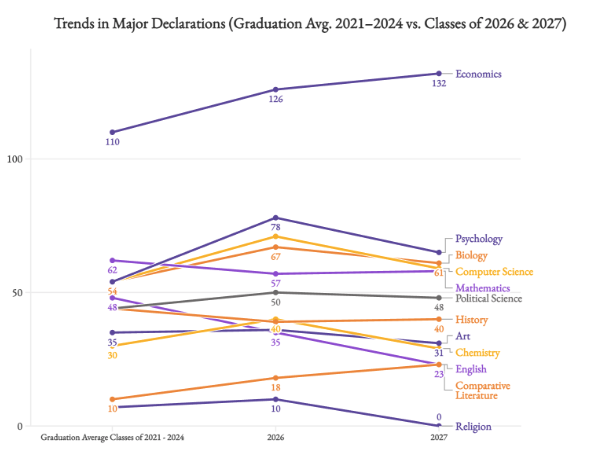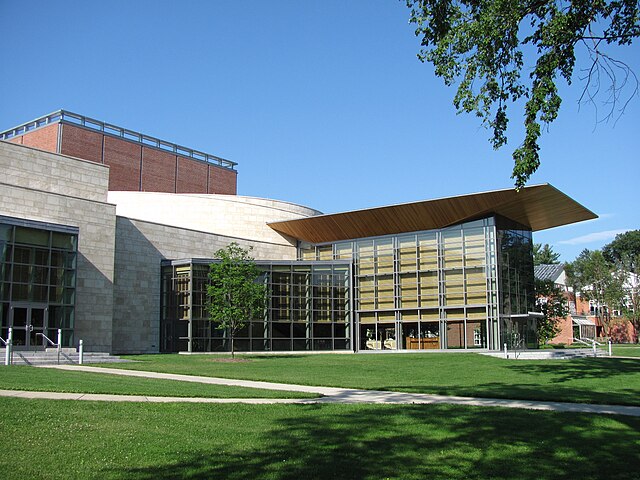
The College launched the CARE Team, a committee that directs students identified through referrals as needing additional support to available campus resources, this academic year. Senior Associate Dean of Administration, Finance, and Strategy Jeff Malanson presented on the initiative at the March 12 faculty meeting.
Composed of 30 staff from College offices, the CARE Team is “a multidisciplinary committee that strives to promote individual student wellbeing and resilience while prioritizing a safe, supportive, and inclusive campus community,” according to its website.
Students can be referred to the CARE Team for support by members of the College community through a form on its website. “Once a referral is submitted, the team’s chair reviews the referral to deploy immediate support resources and the full team convenes every Tuesday to assess cases and determine their next course of action,” Malanson wrote to the Record.
After review, the Director of CARE Team Outreach and Health Education Laini Sporbert or a class dean will reach out to students offering additional support or connection to other resources.
The structure of the CARE Team is based on a pre-existing National Association for Behavioral Intervention and Threat Assessment (NABITA) model used at universities nationwide. It consists of a “core team” that meets weekly and “middle circle officers” who attend meetings as needed. Unlike NABITA’s standard model, the College incorporated staff from the Office of Institutional Diversity, Equity, and Inclusion (OIDEI) into the core team.
“We felt it was essential for [OIDEI] to be involved in all our planning to ensure our practices are equity-based, address the intersectional needs of our students, and follow best practices informed by expertise,” Malanson said in an interview with the Record.
In addition to OIDEI, the athletics department is also represented on the core team. “Athletics interacts face-to-face with a large segment of our students every semester and brings valuable context to these discussions,” Malanson said. “It made sense for them to be part of these conversations.
Discussions surrounding the CARE Team began last spring, and over the summer members of the committee completed a two-day training with a representative from the NABITA, followed by a virtual training session in September. “We … formally formed the team in September and a planning group worked for the first six weeks of the academic year to figure out the structure of how we wanted everything to work,” Malanson said “And then, in mid-October, the team started working.”
In its early stages last fall, the CARE Team primarily handled referrals from members of the group, before opening up referrals to all members of the community, Malanson said. “We wanted to really intentionally practice those processes without necessarily collecting more [referrals] than we’d be able to handle.”
At the faculty meeting, some professors expressed reservations about the CARE Team’s approach. Professor of Philosophy Bojana Mladenović raised concerns about how faculty referrals to the team could impact trust in faculty-student relationships.
“Students are often struggling with non-academic aspects of their lives, and they turn to the faculty they know for support,” Mladenović wrote in an email to the Record. “If I were a student, it would be disturbing to me to know that the faculty member I talk to may report all of our conversations to people I have never met,” she added.
Mladenović clarified that her concern lies not in the existence of the CARE Team but in how it is meant to operate. “There is no problem in the existence of such a team — it could be an excellent thing: more people, swifter help,” she wrote. “The problem is in the manner in which it is supposed to work, without accountability to the students themselves.”
At the faculty meeting, Mladenović also expressed worries about the limited involvement of Integrated Wellbeing Services (IWS) and licensed psychotherapists on the CARE Team. “The vast majority of students who would be referred to the CARE Team could be referred directly to Williams therapists,” she wrote. “That would save time and preserve confidentiality.”
Assistant Director of IWS, Wendy Zunitch, also serves as the primary representative from IWS on the CARE team. She noted that while IWS services are accessible to all students, they may not always be the preferred option. “IWS services are accessible to students referred to the CARE Team – whether the student is struggling with situational stressors, difficult life events, or other mental health concerns,” Zunitch wrote in an email to the Record. “However; some students may prefer to seek support through family, community, the Chaplains’ office, Deans, etc.”
“As an IWS clinician and core member, my role in the CARE Team is nuanced,” she added. “I may provide general clinical consultation, psychoeducation, and resources for intervention to the CARE Team relevant to mental health and wellness needs of students supported by the CARE Team.”
Of the 30 CARE Team members, two — Wendy Zunitch and Diana Sencherey, a staff therapist — are part of the IWS clinical team.
Malanson noted that the team’s representation from a broad range of College offices is intended to ensure that interventions are tailored to each student’s individual needs. “If the right outcome is a referral to IWS, we’re able to do that and make that connection,” he said.
Mladenović said she prefers to provide personalized support to students. “I would always try to talk to the student and learn what is ailing them,” she said.
Similarly, Lecturer in Neuroscience Martha Marvin emphasized the importance of maintaining student trust and communication in the referral process. “In almost every situation where the deans needed to be involved, I would call or email with the agreement of the student,” she wrote in an email to the Record. “I would make the call in the student’s presence or cc them on the email, after getting their assent to the contact.”
“It sounds like the CARE Team will enhance the capacity to respond to referrals, which should be beneficial,” she added.
Malanson does not anticipate significant changes in how professors choose to reach out to get support for students, he said, but hopes that the CARE Team will provide a clearer understanding of what a student is experiencing and facilitate connections to the appropriate resources. “One of the things that the CARE Team is designed to do is it gives a better opportunity for other offices … to get a more complete picture of what’s going on in that student’s life at that particular moment,” he told the Record.
With the CARE Team now in place, some professors do not see their approach to supporting students changing very much, but view the team as an additional resource to make students aware of.
“If I think that a student could benefit from the CARE Team action, specifically from the involvement of people who are not trained psychotherapists, I would encourage the student to contact the CARE Team,” Mladenović said. However, she emphasized that she would not initiate contact herself. In cases of serious emergencies, her response remains unchanged: “In a real emergency, I would probably call 911 and the dean of the College.”
Similarly, Marvin said she remains committed to obtaining student consent before making referrals, now presenting students with options, allowing them to choose the avenue they feel most comfortable with. “I will continue to obtain a student’s assent to reach out, whenever possible,” she wrote. “I will ask students if they prefer to contact the Dean’s office directly or to utilize the CARE Team; both options are available.”
A broader push to engage the campus with the CARE Team will begin next fall. “We’re going to work to build it into student leader training — JAs, housing coordinators, WOOLF leaders, and all the other student leaders that participate in First Days and lead throughout the year,” Malanson said. “We’ll do a lot more tabling and other workshops to get students, staff, and faculty fully up to speed about what’s going on.”












